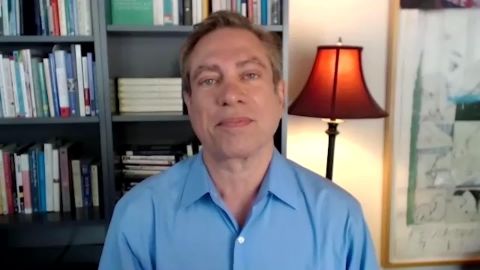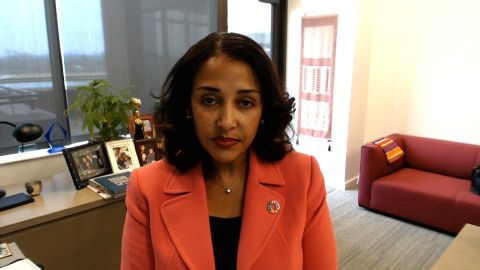Read Transcript EXPAND
CHRISTIANE AMANPOUR: Where do you think the world is right now, given, as we’ve said, the director-general has said that precious time has been lost?
DR. SENAIT FISSEHA, CHIEF ADVISOR TO THE DIRECTOR-GENERAL, WORLD HEALTH ORGANIZATION: Thank you, Christiane, for having me. Certainly, we all are watching this pandemic escalate and unfold in front of us. The World Health Organization has been warning all of us that this is coming. Of course, sometimes, when we see epidemics and outbreaks far away from us, it makes it hard to internalize that it can hit us as well. But as Dr. Tedros always say, you know, pathogens don’t respect borders. And certainly, what we have seen now is massive escalation of the outbreak. Countries are responding, we’re seeing various kinds of response. Some have taken very aggressive measures of social distancing and lockdown and others have combined that with aggressive testing and were making progress. But as he alluded to just yesterday, the window is narrowing and we need to see more solidarity, more coordinated global response and leadership and more aggressive measures taken, particularly around public health measures of finding the cases, testing them, isolating them, treating them and doing contact tracing.
AMANPOUR: Dr. Fisseha, do you think, from what you know, that this call for leadership has now sort of taken place via teleconference? Do you think the G20 meeting will signify a significant uptick in coordinated response to this?
FISSEHA: So, you know, Christiane, the World Health Organization is the only entity in the world that is mandated for the health and well-being of 7 billion people in about 194 member states plus some territories. And under Dr. Tedros’ leadership, they have done a fantastic job trying to do that. But it also falls in countries in stepping up and showing leadership. And, you know, Dr. Tedros, since he took the helm of the W.H.O., has been calling that, you know, pandemics are going to happen. And the G20 has been going through all the pandemic exercises. We are just still on the heels of Ebola and DRC and recovering from the West Africa Ebola outbreak that took the lives of about 11,000 people between 2014 and 2016. But somehow, he’s not sounding, you know, the alarm loud enough. I mean, there have been exercises, but not the kind of global solidarity we want to see. Part of this is that, now is not the time to, you know, play blame game or point fingers, as he clearly articulated yesterday and has said many, many times, public enemy number one is the virus.
About This Episode EXPAND
Dr. Senait Fisseha, chief advisor to the director-general of the World Health Organization, tells Christiane how global leaders should be working together to fight COVID-19. A special report from PBS’ FRONTLINE tells the story of the fight against Ebola in Africa. Grief expert David Kessler joins Michel Martin to explain how the pandemic is triggering a grief response across the world.
LEARN MORE

